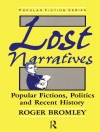New and exciting scholarship on medieval and early modern English culture in all its diversity.
This book honours James Simpson, an enormously influential figure in English literary studies. Known for championing once-neglected writers such as Gower, Hoccleve, and Lydgate, Simpson has also pioneered the field of Trans-Reformation studies, dismantling the barrier between the medieval and early modern periods. He has written powerfully about the history of freedoms, the relationship between literary and intellectual history, and about the category of the literary itself in all its urgency.
Inspired by Simpson’s interventions, the essays collected here deal with texts and topics from the eighth to the seventeenth centuries. Langland’s Piers Plowman and Chaucer’s Physician’s Tale and Troilus and Criseyde rub shoulders with Old English riddles, Saint Erkenwald, The Digby Lyrics, Lydgate’s Dietary, and Lodge’s Robert the Devil. Revisionist studies of two much-debated genres – allegory and romance – join forces with chapters on neglected physical features of early books, line-fillers and catchwords, as well as studies of iconoclasm and the histories of enemy love. The volume begins with a piece by the honorand himself, on recognition in literary texts.
قائمة المحتويات
List of Illustrations
Contributors and Editors
Acknowledgments
List of Abbreviations
Simpson: An Interim Report – Daniel Donoghue, Sebastian Sobecki, and Nicholas Watson
Part I: The Hermeneutics of Recognition
1. The Shock of the Old: Recognition in the Humanities; The 2022 Morton W. Bloomfield Memorial Lecture – James Simpson
2. ‘Stuffed with Divine Words’: Undigested Texts in Early Medieval England – Erica Weaver
3. The ‘Physician’s Tale’ and Chaucer’s Art of Prosopopoeia – Julie Orlemanski
4. ‘Troilus can afford to fall in love … with whomsoever he will’: Free Will and Recognition in Troilus and Criseyde – Laura Ashe
Part II: Genre and Figure
5. Only Rarely Obscure and Not a Genre: Medieval Allegorical Narrative – Nicolette Zeeman
6. ‘Thynke nat the contrary’: Field Notes in the Ecology of Medieval Romance – Nicholas Perkins
7. Filling in the Lines: Text, Image, and Late Medieval Literary Forms – Jessica Brantley
8. Catching at Words: The Literal, the Metaphorical, and the Obvious – Chris Barrett
Part III: Culture and Institutions
9. Petition, Justice, and Peace in Piers Plowman – Yun Ni
10. In Place of the Past: Saint Erkenwald’s Versions of Conversion – Aparna Chaudhuri
11. Proverb and Satirical Time: The Digby Poems and Their Fifteenth Century – Spencer Strub
12. Common Style and the Bourgeois Ethos in John Lydgate’s Dietary – Taylor Cowdery
Part IV: Reformations
13. Rewriting Robert the Devil: Thomas Lodge and Medieval Romance – Cathy Shrank
14. Iconoclasm and the Epigraphic Image – Jessica Berenbeim
15. The Letter Kills but the Spirit Gives Life (2 Corinthians 3:6): Or, What Happened to Enemy Love? – David Aers
16. James Simpson’s Freedoms: An Appreciation – Jason Crawford
James Simpson’s Publications from 1984 to 2023
Bibliography
A Note on the Bloomfield Conferences
General Index
عن المؤلف
James Simpson teaches English at Harvard University. He publishes on a wide range of topics in on late medieval and early modern Western European Literature.












